“Since the beginning of the war, we have been watching the russian military hunting journalists in Ukraine,” said the President of the National Union of Journalists of Ukraine (NUJU), Sergiy Tomilenko, in a comment to the International Federation of Journalists.
“The russians attack media workers using drones and sniper rifles, illegally capture them, direct missiles and drones to places where journalists usually gather,” Sergiy Tomilenko said. “So, the tactics of repeated shelling of places where there have already been hits, where rescuers and media workers work, completely fits into the russian war against journalists.”
The insidious double strikes on Kharkiv on April 4 and Zaporizhzhia on April 5 injured four journalists, damaged the homes of two media workers, and destroyed the office of the Zaporizhzhia newsroom.
“The enemy drone fell 5-6 meters from me.”
The NUJU got to know about this from a journalist from Kharkiv, Yuliya Boiko, who writes for the News.Live website and prepares materials for the Belsat TV channel as a freelancer.
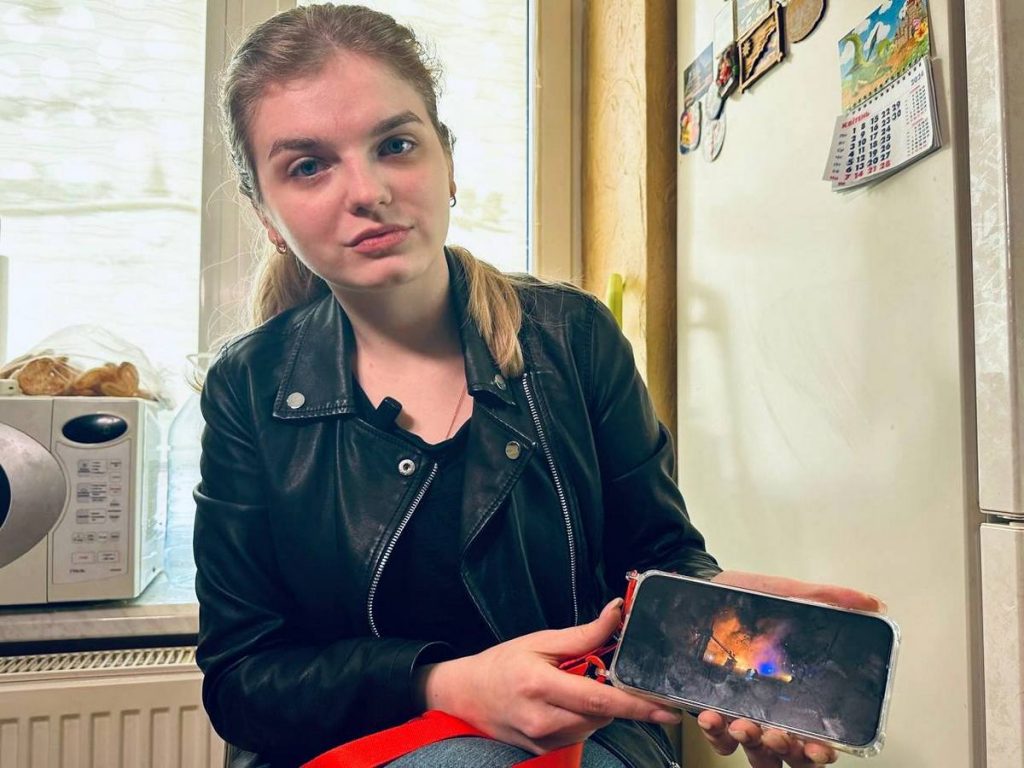
According to her, when the shelling of Kharkiv began at around 1 a.m., at first, one Shahed UAV hit the neighboring yard. Yuliya‘s family went down to the first floor, and then another drone hit the three-story building next door. In Yuliya‘s house, the windows were blown out, the door was damaged by the impact, and the roof was hit.
Therefore, the journalist went to work at the place of the explosion.
“I managed to take pictures for 10-15 minutes, and then I heard the rescuers start shouting: “Go to the shelter!” I followed the medics, but I heard that a Shahed was too close, and reflexively fell to the ground,” said Yuliya. “Immediately, it became very hot: the drone fell not far away. If I were a little closer, I would not have made this comment.”
Immediately after the hit, the journalist was already taking photos, and at 9 a.m., she was working live from the site…
Yuliya received a concussion and post-concussion syndrome. The windows and front door were damaged in her house. The NUJU provided her with emergency financial assistance.
That day, an explosion also blew out a window in the apartment of journalist Vadym Makariuk.
“Woke up from the explosion. Later, I saw another flash through the window. The glass in the window cracked and flew out from the impact. But this is a trifle. This is a common thing in Kharkiv… Of course, it’s scary. But this is far from the first explosion in Kharkiv,” says Vadym.
“We were 15 from the point of impact.”
Kharkiv journalist Viktor Pichuhin, who happened to be caught in a repeatedly hit by a russian drone on April 4, is still undergoing treatment and further examination – there is a suspicion of post-concussion syndrome.
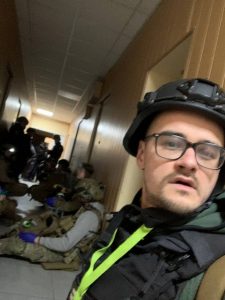
When there was another drone attack on Kharkiv that night, Viktor went to the place where one of the drones hit – a three-story residential building.
“I began to film the work of rescuers and medics. At that time, the victims were only with an acute reaction to stress. At some point, the command “Air! A drone is flying at us!” remembers Viktor. “I ran into the car to the medical volunteers whose work I was filming. The last of the medics managed to jump into the trunk, which was immediately hit by the blast wave from the explosion of the drone – we were fifteen meters from the point of impact. Some of the medics who were in the car with me received post-concussion syndrome. I was also examined on the spot – no significant injuries were found, only small cuts. The helmet was torn off my head – obviously by an explosion… After the explosion, I also filmed the work of rescuers and medics. Then they announced the threat of drones again – and we all went to shelter.
According to him, at the moment, he is feeling well, but this event, of course, could not but affect his health. Therefore, the continuation of treatment and recovery is ahead.
“The missile came so fast!”
Olha Zvonariova, a correspondent of the Ukrainian national news agency, Ukrinform, who came under enemy fire on April 5 in Zaporizhzhia, is being treated in a hospital.
PHOTO: Olha Zvonariova in the hospital
The journalist has a damaged thigh, where many pieces of debris got into, her stomach (a small piece of debris stuck there, but the doctors decided not to remove it), and a fractured wrist.
“The patient’s condition was quite serious due to massive trauma and blood loss. However, we did everything on time and in full,” Petro Ryzhenko, the director of the city’s emergency medical care hospital, told Ukrinform.
Olha recalls that after the first three rocket attacks on Zaporizhzhia, she and her colleagues worked on the spot: the emergency services and the police converged there. Soon, everyone heard the fourth rocket and started running.
“But she flew so quickly that I fell near the car that was standing nearby. She fell on her side. The side on which she was lying is undamaged, and the top is cut,” she added. “The glass in the car was broken, gasoline was leaking. I am very grateful to my colleagues and doctors who were at the scene of the incident and very quickly found their way around – put on a tourniquet, called an ambulance for me, and another colleague who was also injured. Thanks to such actions, deaths at that moment were avoided.”
“We all believe that Olya will recover soon,” commented Oleksii Matsuka, the director general of Ukrinform, who visited the journalist in the hospital ward. “Doctors are currently monitoring the condition… We, as a whole agency are monitoring the situation, in contact with the mother and relatives.”
The journalist maintains an optimistic mood. “A lot of work. When the bones grow back into battle!” she says.
Journalists from Zaporizhzhia announced a rally in support of a wounded colleague. The NUJU provided Olha with emergency financial support. Olha Zvonariova‘s card number is 5363542018606351.
“I felt blood running down my face.”
The journalist of the 1+1 TSN TV channel Kira Oves, who received a cut wound to the head during the same explosion as Olha Zvonariova, says that she feels “pretty good” at the moment.
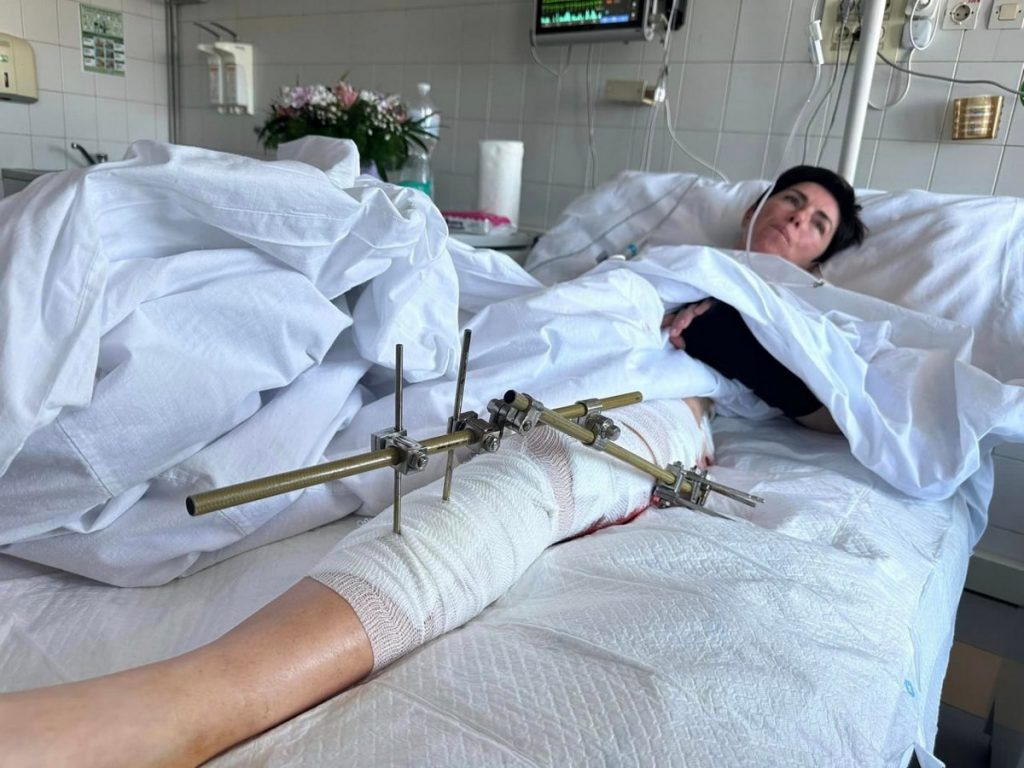
“But I can’t say that there is nothing to complain about,” she adds. Everything plus or minus is good.
The journalist says that she was working near the place of the previous “hit” – by that time, two hours had already passed.
“We recorded damage and interviewed people. Suddenly, we hear a whistle overhead – and immediately an explosion. I didn’t feel the wound; I just felt the blood running down my face. We ran to find a place to hide because another “hit” could happen. I can say that I was still lucky – my colleague Olha Zvonariova was more affected. Fortunately, our equipment was not damaged,” adds Kira Oves.
The NUJU provided emergency financial assistance to a colleague.
“We cannot stay working in a destroyed office.”
The office of the publication RIA-Pivden, which moved from Melitopol to Zaporizhzhia, temporarily occupied by the russians, was destroyed.
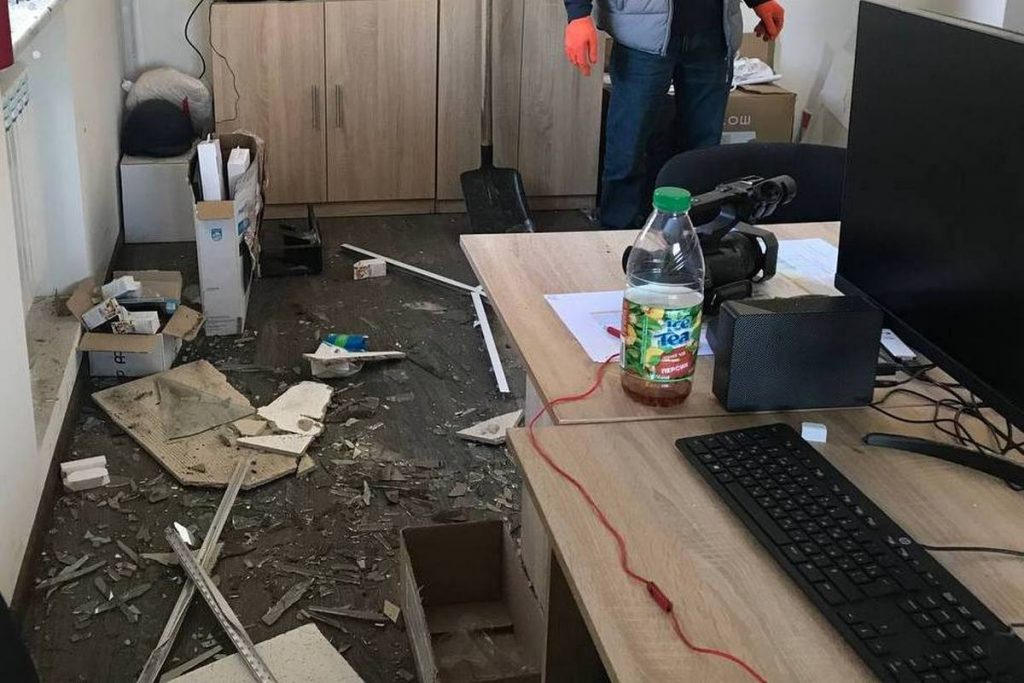
“We are currently assessing the consequences of the shelling,” says journalist Svitlana Zalizetska. “We took out all the equipment from the destroyed office and put it in two different places while we were looking for a new place. We cannot continue to work in the destroyed office. After moving, they unpacked. It turned out that the monitor and Steadicam were destroyed. Also, the illuminator does not work.”
The new office for the publication was a room in one of the office centers in the city center.
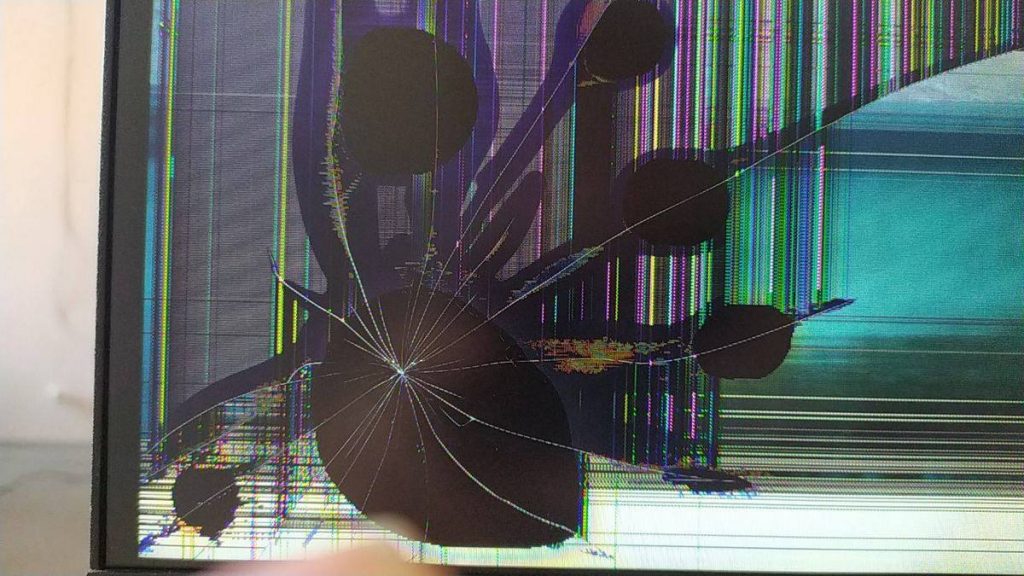
The NUJU expresses its solidarity with the affected colleagues and those whose houses and offices were destroyed.
“We admire the courage of journalists who are dedicated to promptly informing their audience and, despite the danger, continue to work in places close to the front line,” says NUJU President Sergiy Tomilenko.
The U.S. Committee to Protect Journalists is calling on russia to stop shelling civilian infrastructure in Ukraine and expressing solidarity with journalists from Kharkiv and Zaporizhzhia who suffered as a result of repeated russian shelling last week.
“The fact that journalists are coming under new fire while covering the aftermath of previous attacks shows the degree of risk they are taking and their dedication to documenting russia’s war in Ukraine,” said Gulnoza Said, CPJ’s Europe and Central Asia program coordinator. “The russian and Ukrainian authorities should investigate the recent attacks on Ukrainian journalists in Kharkiv and Zaporizhzhia, and russia should stop attacks on civilian infrastructure in Ukraine.”
In its special statement, the Committee cites reports of these attacks by the NUJU and IMI.
The network of the NUJU Journalist Solidarity Centers promptly processes and verifies information about journalists and mass media in need of assistance, establishes contact with them, and provides emergency assistance.
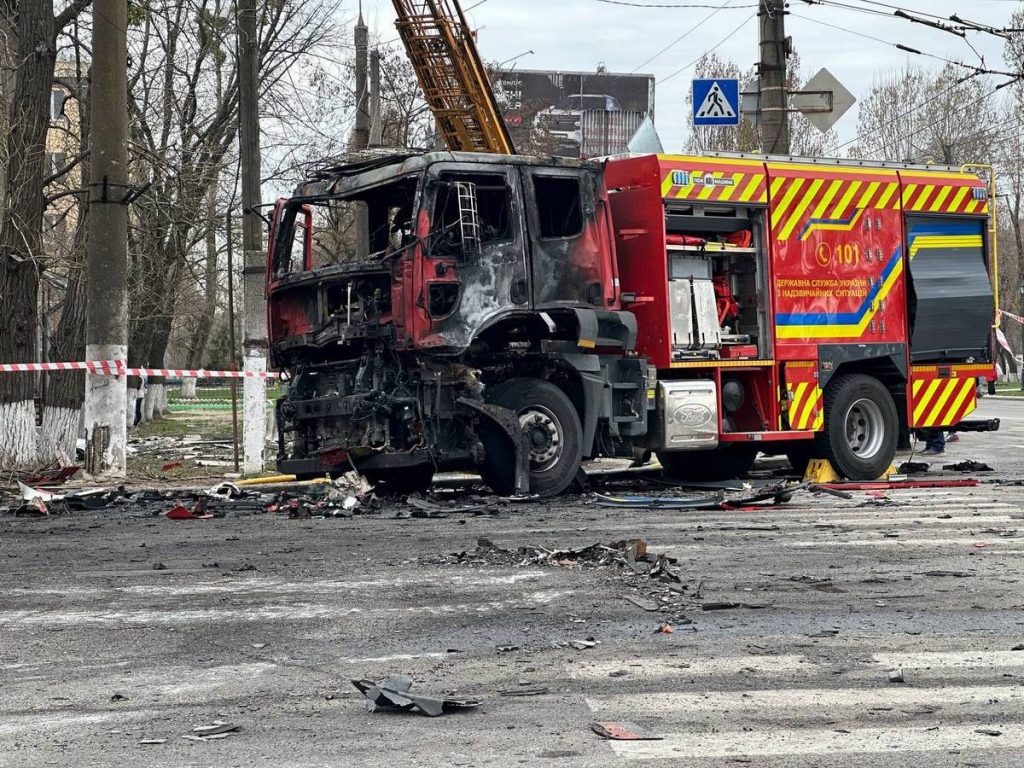
NUJU Information Service

 THE NATIONAL UNION OF
JOURNALISTS OF UKRAINE
THE NATIONAL UNION OF
JOURNALISTS OF UKRAINE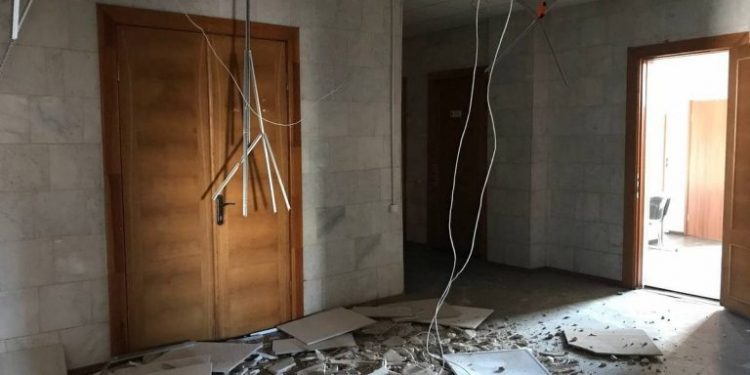
















Discussion about this post